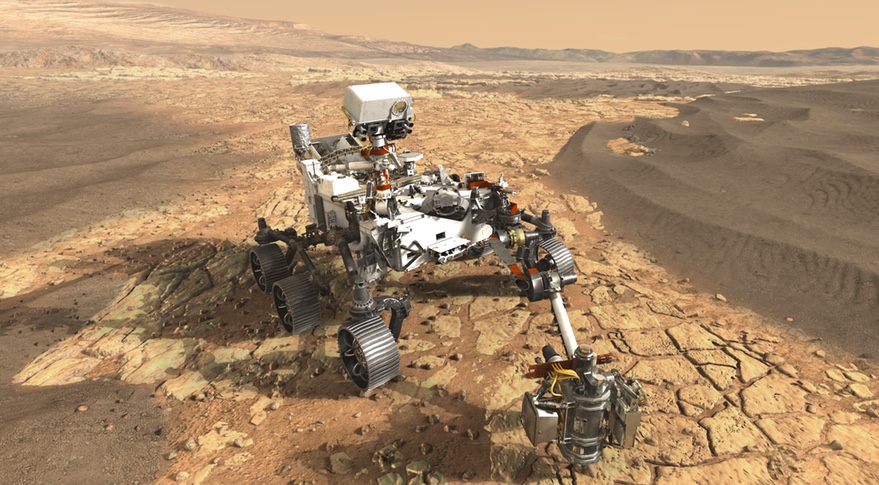Life on Mars
December 10, 2019
Scientists are finding more about what is and not on Mars. 50 years ago, the first lander reached Mars, yet so much about the red planet still remains a mystery. Scientists are still trying to bring back samples of the planet to further their studies. With rovers and landers landing on Mars, data should be coming back soon to hopefully find mysteries of the red planet. Unfortunately, humans are years from landing on Mars themselves.
After a lot of research, rovers, and investigation, the question still remains whether or not there is life on Mars. To understand more about this, scientists have to go back about three to four billion years. During this time, Mars and Earth shared a lot of the same characteristics. Both planets were warm and wet with a vigorous atmosphere. Mars also started with all of the same raw materials as Earth.
After suffering changes, Mars has almost changed to the complete opposite as it was. For instance, the Red Planet lost its magnetic field and has gone completely cold. The loss of its magnetic field means there is nothing protecting the planet from radiation. Although Mars is so different now, it is still the sister planet to Earth. This means life may have started on Mars around the same time it did for Earth.
Just because Mars is cold and unprotected doesn’t mean life can’t survive. In 2018, scientists found organic matter on the planet. Therefore, there are building blocks that life used to or does exist on the Red Planet. This organic matter is crucial to collecting data on potential life on Mars. NASA’s rover also collected data on Methane on Mars. Methane is considered the most simple organic chemical, which could also be another sign of life.
Water and ice have also hinted at finding life on Mars. A breakthrough in this came through in 2018 when the European Space Agency detected a lake of liquid water under the Mars southern polar ice cap. Despite the challenges, NASA is hoping to send astronauts to Mars by 2035. This could mean we could be the first life on Mars.


